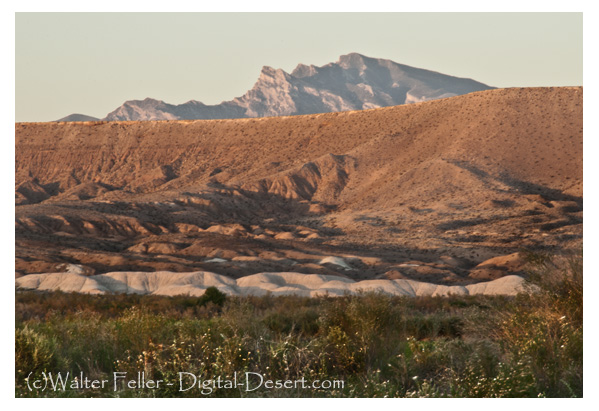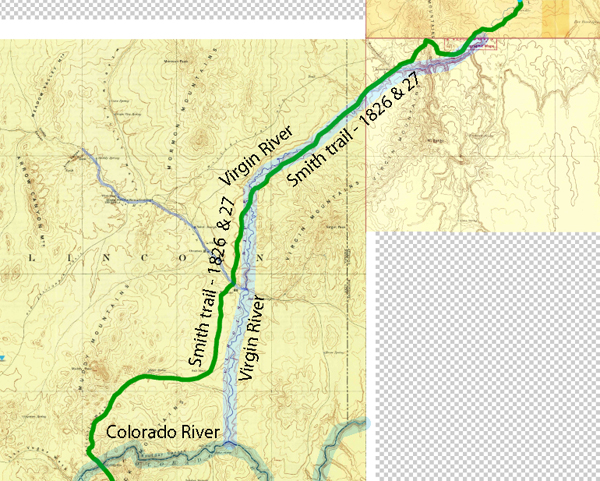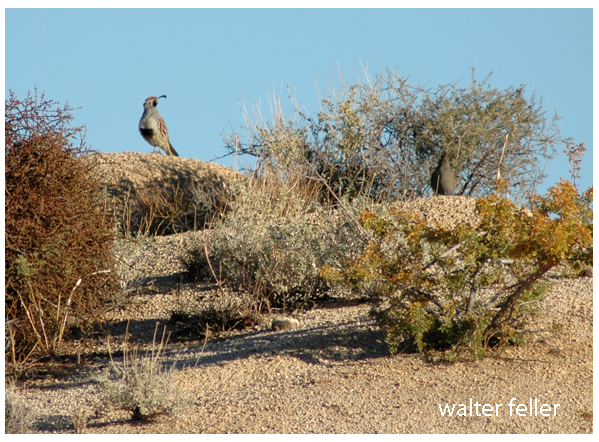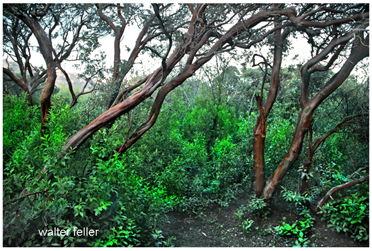A Token of Friendship
The poor fellow the bravest in the band advanced with evident signs of fear his limbs trembling and his voice faltering. holding out in his hand a hare or rabbit to offer as a token of friendship. I took it and carrassed him and he immediately set down. When the others saw that he was not hurt 10 or 12 of them came bringing in their hands an ear of corn as an emblem of peace - (a pleasing sight to starving men) they set down Began to talk and make signs. As provisions was our greatest present desire we were much pleased to hear that they had corn and pumpkins close at hand. I gave them some small presents among which I found that pieces of Iron were verry acceptable and started some of them off for corn & pumpkins. they soon returned well loaded and indiferent as this may seem to him who never made his pillow of the sand of the plain or him who would consider it a hardship to go without his dinner yet to us weary and hungry in the solitary desert it was a feast a treat that made my party in their sudden hilarity and Glee present a lively contrast to the moody desponding silence of the night before. As both men and horses required rest I thought it advisable to remain here 2 or three days during which time I sent some men down to the river to see what the prospect was ahead and 2 men back on the trail for 2 horses that had been left behind. In the mean time I was trading for Corn in order to have a small stock of provision when I started again. My men from below returned and told me that the river about 10 m below entered the mountain which we could see from camp and that we could not follow the River through the Mt unless we traveled in the water as the Rocks rise from the water perpendicularly on both sides. The river being wide and shallow there is no chance for Beaver but there being a great many willows cut on the banks it appeared that they came here in high water and the Indians by signals told me that there were plenty below. The two men returned on the third day with the tired horses.

The weather while here was verry warm the Mercury rising above blood heat. I visited some indian lodges a mile above our camp on the creek for the purpose of seeing how they farm. Their little corn patch is close on the bank of the creek for the convenience of water. The Creek is damed about and the water is conducted in a trunk to a place where it can be spread over the surface. For a hoe they use a piece of wood 3 in Broad and 4 feet Long. The pumpkins and Corn were not quite ripe. Their small Lodges are covered with weeds and cane grass the fires being on the out side. They kept their women and children secreted so that I did not see one while with them. They have some Crockery which is thiner than common Brown earthen colored yellow lead Color and like stone ware. I saw no Iron among them so that any piece that could be converted into a knife or an arrow point was a great acquisition. They have pipes made of fine clouded marble and a kind of Tobacco of their own like that which we in the Mountains call snake Tobacco. Each man smokes for himself not passing the pipe around the circle as is the custom among the Mt Indians. They care verry little about our Tobacco. A good many of these Indians were the scalp of an antelope or Mt sheep with the ears on for a hat. In actions and language these indians are like the Pa utch.* (* From the place where I struck Adams River to Corn Creek there was but a few places where there was any timber. What I saw was cotton wood and in places willows The grasses were Cane salt and wire grass. On Corn Creek was a considerable Cotton wood & willows. The country on the Adams River above where I struck it had a peculiarly wild and rugged appearance. I found two or three shrubs that were new to me. On growing in bundles like a currant bush with a bright red and polished bark. Another about three feet high green bark prickly surface and when striped of the bark is perforated it is hollow like a reed.)

Having somewhat recruited both men and horses I moved on down the River to the foot of the Mt and then turned off to the right the course of the river still S W winding about among the rocks and ravines. I succeeded in gaining the Summit of the Mt composed of Ridges of Rock and gravel. But although I was so high that I could see the low ground beyond the mountain yet there was a deep ravine before me which I was obliged to cross the descent was extremely steep and as we had had no water since morning I was obliged to follow down the Ravine to the River & as it was then nearly night encamped without any grass for my horses. I killed an Ibex in good order and one of the men killed another. These relished verry well with men who had been for several days deprived of their accustomed rations of meat. Early the next morning we started down in the bed of the general shallowness of the water. By the meanderings of the stream it was about 12 m through the rocks rising perpendicularly from the waters edge in most places to the heighth of 3 or 400 feet. A good many hot springs but not as hot as some I have seen at the Salt Lake and on the Big horn. Some appearance of Iron ore. At one place I was obliged to unload and swim the horses. Moved about 3 miles after getting through the mountain to the bed of a stream coming in from the west on which there was some good sized cotton wood trees. There is verry little appearance of Indians in this vicinity. The country is not so rough as on the other side of the mountain but extremely barren and the river continues wide and shoal. At this place I saw a new kind of quail some smaller than the atlantic quail. The male has three or four feathers an inch long rising from the top of the head. For four days traveling down the River nothing new or material occured. After passing the Mt the River turns more south keeping nearly parallel with the mountain and at the distance of 5 miles. The grass has been somewhat plentier along the river, and in two or three places a few small cotton wood trees. No game since we left the Mt.

On the evening of the fourth day from the Mt I saw an Indian at a distance called to him and after a little hesitation he came to me and understanding by his signals that there was some lodges near by we went on to the mouth of a creek from the SW small but apparently unfailing on the bank of which was several Lodges of Indians like those on corn Creek. They had corn (which was gathered) Pumpkins squashes and some small green Water Melons. I soon purchased some pumpkins and squashes and encamped. As I was weary of traveling in this barren country I of course made many enquiries of the Indians as to the country ahead. They told me there was a large river not far off and of course plenty of Beaver for it is a general characteristic of indians to answer your questions in the manner that they think will please you but without any regard to the truth. There are however some individuals of different tribes in the Mts on whose word you may depend. These Indians are Pa utch but not as wild as those above the Mt. their women and children did not run off. I saw at their Lodges a large cake of rock salt weighting 12 or 15 lbs and on enquiry found that they procured it a cave not far distant. I engaged an indian and sent one of my men to ascertain the truth. The men reported it as true. I saw Ochre among these Indians which was procured from the N E about 30 m. I thought I had some reason to believe these indians in relation to the beaver as they had mocasins made of the skins. It happened that there were two indians here from another tribe apparently for the purpose of trading for salt and ochre. They told me that a days travel below here this river entered another large River coming from the North East and several days journey Below the mouth of this river they resided where there is plenty of beaver and the indians have horses. I saw on these indians some blue yarn and a small piece or two of Iron from which I judged they had some intercourse with the Spanish provinces. I engaged these indians as guides for I might as well go on as undertake to return. Some of my horses had given out and were left and others were so poor as not to be able to carry a load. The prospect ahead was if the indians told me the truth that I might in this moderate Climate trap all winter and also purchase some horses. these considerations induced me to abandon the idea of returning to the mountains until I should have gone somewhat further in exploring the secrets of this thus far unpromising country.
< Previous - Next >The poor fellow the bravest in the band advanced with evident signs of fear his limbs trembling and his voice faltering. holding out in his hand a hare or rabbit to offer as a token of friendship. I took it and carrassed him and he immediately set down. When the others saw that he was not hurt 10 or 12 of them came bringing in their hands an ear of corn as an emblem of peace -
 Manzanita
ManzanitaGave some pieces of iron
Evidence of contact with Spanish
Observe Indians; salt, beaver, iron
Quail, ibex,
Hot springs, Corn Creek (Muddy?)
Climate